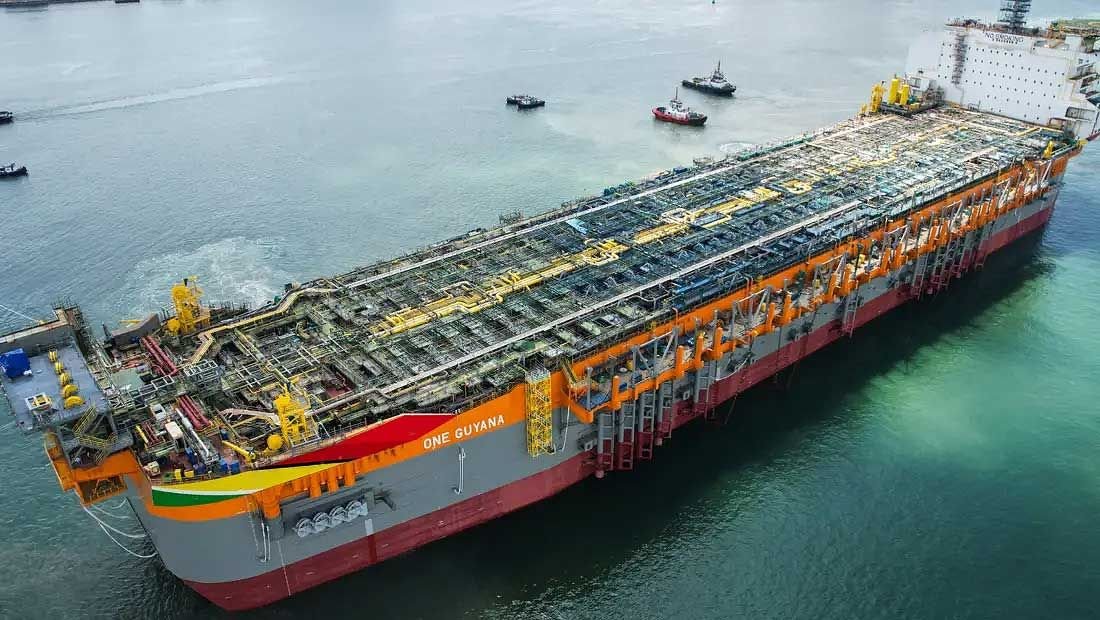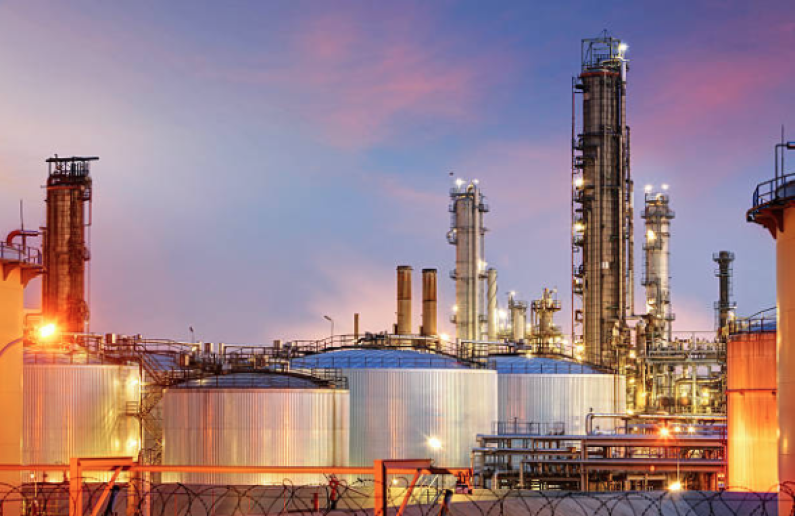As an emerging global oil producer, Guyana urgently needs to establish its own local oil refinery to maximize the value of its resources. Building a refinery domestically means creating more jobs, reducing costs, and achieving genuine energy independence. Exporting our crude oil for refining abroad and then repurchasing it as finished fuel is an expensive and inefficient strategy.
In less than ten years, Guyana has gone from an oil frontier to one of the world’s fastest-growing oil-producing countries. With production now exceeding 667,000 barrels per day (bpd) as of May 2024, thanks to the productive Stabroek Block operated by ExxonMobil, Guyana is no longer just a regional player—it’s quickly becoming a global energy power. The government expects output to exceed 1.2 million bpd by 2027, solidifying Guyana’s position as one of the top oil producers in the world on a per capita basis.
This transformation has yielded tangible economic results. Guyana recorded the world’s highest GDP growth in 2024, at 43.6%, mainly driven by oil revenues. The country is now the fifth-largest crude exporter in Latin America, and the Guyanese people are starting to enjoy the benefits of their nation’s extensive offshore resources. However, a significant gap still remains—Guyana cannot yet refine its own oil.
Currently, all of Guyana’s crude oil exports out of the country. The nation imports almost all of its refined petroleum products, including gasoline, diesel, and aviation fuel. This leaves Guyana exposed to global fuel price changes and supply chain issues, even though it has an estimated 11 billion barrels of recoverable oil. Every year, the country spends over US$800 million on fuel imports. Building a domestic oil refinery has become more urgent than ever.
The government of Guyana, led by President Dr. Irfaan Ali, Prime Minister Mark Phillips, and Vice President Dr. Bharrat Jagdeo, has focused on energy security and developing downstream value-added activities. The Ministry of Natural Resources has received several proposals to build a local refinery, including a modular plant that can process 30,000 barrels per day. This project is planned for construction in Region Six, with strong investment interest from both local and international companies.

President Ali has been vocal about the importance of Guyana not only extracting and exporting crude oil but also adding value locally. In his public statements, he has highlighted that downstream development, including refining and petrochemicals, is crucial for Guyana’s economic diversification and long-term stability. “We must no longer be a country that simply exports crude and imports fuel at a high cost,” the President said. “We must build our own capacity and control more of the value chain.”
The economic and strategic reasons for refining oil domestically are clear. First, it will greatly reduce Guyana’s reliance on foreign suppliers for fuel, safeguarding the country from global shocks, sanctions, or supply shortages. Second, it would enable the country to retain the refining profits, which are currently earned abroad. This, in turn, would help stabilize local fuel prices, reduce inflationary pressures, and generate a positive ripple effect across the economy.
Furthermore, a refinery would generate extensive job opportunities. Hundreds of well-paying jobs would be created directly at the facility, while thousands more could be supported indirectly across various industries, including construction, logistics, engineering, and services. It would also promote the development of new technical skills among the local workforce and stimulate the growth of secondary industries, such as plastics, fertilizers, lubricants, and even bitumen for road construction.
The benefits would extend beyond Guyana’s borders. A domestic refinery could support the CARICOM region, where many small island nations face high fuel costs and price fluctuations. Guyana could establish itself as a regional energy hub, offering stable and affordable fuel to its Caribbean neighbors. This would not only increase trade but also reinforce Guyana’s role as a leader in regional economic integration.
Currently, refining Guyanese crude abroad in countries like Nigeria, Trinidad and Tobago, or Ghana is both costly and inefficient. These plans not only reduce Guyana’s profits but also introduce unnecessary logistical risks. With high oil output and steady growth, there’s no reason for Guyana to outsource its refining needs. The country now has the production capacity and investment interest to refine its oil domestically.
The local business community strongly endorses the government’s position. The Private Sector Commission has publicly called for increased downstream investments and has made refining a national priority. Many businesses are prepared to invest in essential support infrastructure for the refinery, including transportation networks, storage tanks, port upgrades, and electrical systems.
However, challenges still remain. Refining is a capital-intensive process that must be scaled properly to be economically viable. Experts suggest that a minimum processing capacity of 50,000 to 100,000 barrels per day (bpd) is required for profitability, so modular refinery plans should be designed with future expansion options in mind. Environmental assessments, community engagement, and regulatory oversight will also be crucial to ensure the project aligns with Guyana’s sustainable development goals.
Nevertheless, the timing has never been better. Oil prices remain stable, production is increasing, and investor confidence in Guyana stays high. ExxonMobil and its consortium partners—Hess and CNOOC—have already deployed four floating production units (FPSOs) offshore, with two more planned for 2027. As production increases, the amount of feedstock available for domestic refining is expected to grow significantly.
The opportunity is clear: by investing in a local refinery, Guyana can shift from being just a crude exporter to building a fully integrated oil economy. This not only boosts the economic benefits of its natural resources but also improves energy security, creates jobs, and supports long-term industrial growth.
The government of Guyana deserves praise for its progressive vision and commitment to building an energy-secure and economically diverse nation. By supporting a local refinery, President Ali’s administration demonstrates foresight and determination to ensure that the country’s oil wealth benefits all Guyanese now and in the future.
Guyana is on the verge of a major transformation. Now is the time to act. Not in Nigeria, not in Ghana, and not in Trinidad and Tobago, but with a modern oil refinery right here at home that will benefit the country and its people.





